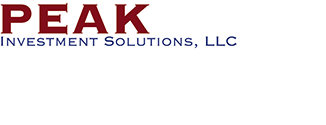Over the past few months, the difference in historical performance between DFA Small Value (ticker: DFSVX) and Vanguard Small Value (VISVX) has narrowed. For example, for the 10-year period ending December 2014, the compound annual return of DFSVX was 7.9 percent while VISVX earned 8.3 percent. Comparatively, for the 10-year period ending December 2012, compound …Read More.
There are a number of explanations for why many individual investors ignore the overwhelming body of academic evidence and continue to play the loser’s game that is active management. Briefly, three of those reasons are: An education system that has failed the public. Unless an investor obtains an MBA in finance, it’s unlikely that person …Read More.
Each January, I put together a list of predictions that financial “gurus” have made for the upcoming year—sort of a consensus of “sure things.” I then keep track of whether or not these “sure thing” predictions have actually come to pass. The turn of the calendar into April means that it’s time for our first …Read More.
One of my favorite films is “Moonstruck.” It contains a great scene—one I often use when discussing investment strategies I’m asked to review in my role as the director of research for The BAM ALLIANCE, because it makes an excellent and pointed observation. In the scene, Cosmo Castorini, a plumber, explains to a young couple …Read More.
Recently, a blog post by Chris Marx, a senior portfolio manager for equities at New York-based AllianceBernstein (AB), came to my attention. In it, Marx commented on a March 9, 2015 article in The Wall Street Journal that highlighted the reality that today’s investors should have lower expectations for future returns because valuations are now …Read More.

Human beings don’t like uncertainty, especially when we’re contemplating our financial futures. It’s not enough for us to think that we’ll have enough money to send our kids to college, or to retire. We want to know exactly how much money we’ll need to achieve those goals — and precisely how we’re going to get …Read More.
Recent events have led me to conclude that, at least in some ways, the U.K. is ahead of the United States when it comes to investing. The first—and by far the most important—reason I have for drawing such a conclusion is that in January 2013, all licensed financial advisors in the U.K.were required to become …Read More.

I’m sure Jim Cramer will be the last one to leave the burning building, but the era of stock picking is basically over. He continues to talk about index funds as being adequate for those who don’t have the time to research individual stocks, but investors — in increasing numbers — are too smart to …Read More.
If you’re like most Americans, you may be confused, or even paralyzed, when it comes to developing a financial plan. In fact, most investors I’ve met—including many of those who have a relationship with a stockbroker—don’t have a written investment plan, let alone an overall financial plan designed to incorporate estate planning and risk management …Read More.
You made a huge mistake last year with your money. You know this now, right? The only investments in your portfolio that did very well were probably United States stocks. Bonds may have held their own, but everything else was just pitiful. International stocks performed horribly and emerging markets weren’t much better. What were you …Read More.
As sure as the sun rises in the east, the start of each year brings with it a fresh wave of assurances from the “gurus” who appear in the financial media that this year will be a stock picker’s year. And as sure as the sun sets in the west, the year invariably ends with …Read More.

When I look at hedge funds, there are three data points that keep bothering me. They create a pattern that doesn’t make a lot of sense. I hope you can help me understand what I’m missing. 1. Hedge fund performance has been terrible. In 2014, the Barclay Hedge Fund Index returned 2.88 percent. In that …Read More.
In 2014, the HFRX Global Hedge Fund Index lost 0.6 percent, underperforming the S&P 500 Index by 14.3 percentage points. And while the index outperformed foreign equities, which generally lost between about 2 and 5 percent, it underperformed virtually riskless one-year Treasury notes, which returned 0.2 percent. It also underperformed a typical, globally diversified and …Read More.
An overwhelming amount of evidence exists to clearly demonstrate that, in aggregate, active management is a loser’s game. And this is true regardless of whether markets are efficient or inefficient, or whether they are in a bull or bear phase. But if the evidence doesn’t convince you, perhaps some of the market’s smartest and most-well-respected …Read More.

This is the time of year when investment boards and committees in charge of selecting fund managers for pension plans and 401(k) plans gather for a time-honored ritual. They review the past performance of their fund managers and decide whether to keep or replace them. The point of this elaborate and lengthy exercise is to …Read More.



